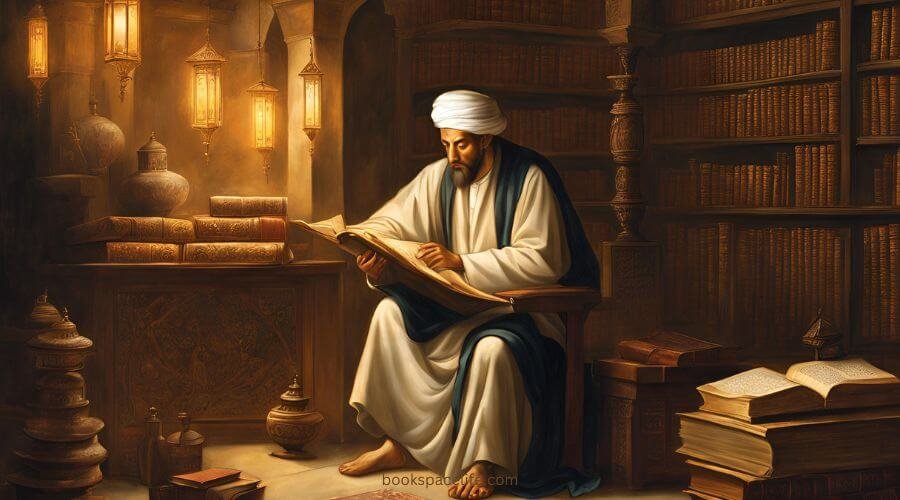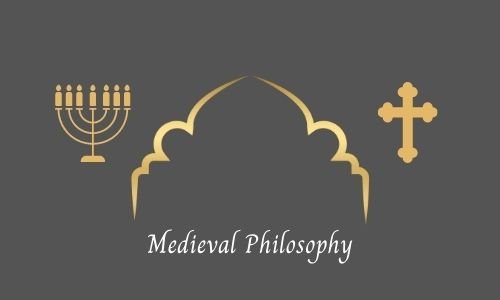Ibn Sina
Ibn Sina : The Philosopher and Physician of the Islamic Golden Age
Ibn Sina (980 – 1037 CE), often known in the West by his Latinized name Avicenna, is one of the most influential and revered thinkers of the medieval period.
Ibn Sina is widely regarded as the most significant philosopher and physician in the Islamic Golden Age, a time when intellectual and scientific achievements were flourishing under the Abbasid Caliphate.
Ibn Sina’s contributions to philosophy, medicine, mathematics, and the natural sciences would shape not only the intellectual landscape of the Islamic world but also have a profound impact on European thought.
His work in philosophy and medicine has left an indelible mark on both medieval and modern intellectual history.
Ibn Sina’s life and legacy provide a fascinating insight into the intersection of philosophy, science, and religion in the medieval world.
His work bridges the gap between ancient Greek philosophy, particularly the ideas of Aristotle and Plato, and the Islamic worldview.
With his groundbreaking contributions, Ibn Sina’s influence extended far beyond the Islamic world and had a lasting impact on the development of Western philosophy and medicine.
Table of Contents
(1) Early Life and Education
Ibn Sina was born in 980 CE in the city of Afshana, near Bukhara in present-day Uzbekistan, which was part of the Samanid Empire at the time.
His full name was Abu Ali al-Husayn ibn Abd Allah ibn Sina, but he is most commonly known by his shortened name, Ibn Sina.
His family belonged to the Persian nobility, and his father was a local official. Growing up in a well-to-do family, Ibn Sina had access to the best education available at the time, and he quickly demonstrated a remarkable aptitude for learning.
At the age of ten, Ibn Sina had already memorized the Quran and began to study various subjects, including Arabic grammar, logic, theology, and mathematics.
He was particularly drawn to philosophy, studying the works of the Greek philosophers, especially Aristotle and Plato, whose texts had been translated into Arabic.
His early education was guided by prominent scholars in the region, and he was soon recognized for his prodigious intellect.
By the age of 16, Ibn Sina had mastered many of the foundational texts in philosophy, science, and medicine.
His thirst for knowledge was insatiable, and he soon began to study the works of Galeno (the Greek physician), Hippocrates, and other classical Greek figures.
His fascination with medicine led him to experiment with treating patients, and by his late teens, he was already known as a skilled physician.
It is said that he cured the Samanid ruler, Nuh ibn Mansur, of a serious illness, which earned him the position of court physician and brought him widespread recognition.
Ibn Sina’s education was not limited to books and formal learning. He traveled extensively throughout the Islamic world, including to regions such as Persia and the Levant, where he further expanded his knowledge by engaging with scholars from diverse intellectual traditions.
This exposure to various schools of thought helped him develop a unique philosophical system that blended ancient Greek thought with Islamic teachings.
(2) Philosophy and Major Contributions
Ibn Sina’s contributions to philosophy were vast, encompassing areas such as metaphysics, epistemology, logic, and ethics.
He is perhaps best known for his work in metaphysics, where he synthesized Aristotelian thought with the Neoplatonic and Islamic traditions.
His most influential philosophical work, The Book of Healing (Kitab al-Shifa) and The Canon of Medicine (Al-Qanun fi al-Tibb), reflect his efforts to integrate reason with faith and scientific observation with metaphysical inquiry.
(i) Metaphysics and the Theory of Being
One of Ibn Sina’s most significant contributions to philosophy was his theory of being. He was deeply influenced by Aristotle’s work on substance and essence but expanded upon these ideas in his own metaphysical system.
Ibn Sina’s concept of necessary being (or Wajib al-Wujud) is central to his philosophy. He posited that everything in existence has either necessary existence or contingent existence.
The necessary being is that which exists by its very nature and is not dependent on anything else for its existence—this is what Ibn Sina identified as God, the ultimate cause of everything in the universe.
This metaphysical framework allowed Ibn Sina to reconcile the Greek idea of a prime mover with the Islamic concept of Allah.
Ibn Sina’s concept of existence also included a detailed analysis of the hierarchy of beings, ranging from the simplest material things to the highest level of spiritual entities.
At the top of this hierarchy is God, followed by the intelligences or angels. Below them are the soul, the material world, and everything in between.
Ibn Sina’s metaphysical system had a profound impact on Islamic philosophers, particularly Mulla Sadra and Suhrawardi, who built on his ideas.
(ii) Epistemology and Knowledge
In terms of epistemology, Ibn Sina proposed that human knowledge is a process that begins with sense perception and culminates in intellectual understanding.
He drew heavily from Aristotle’s distinction between potential and actual knowledge, arguing that the human intellect begins in a state of potentiality and gradually becomes actualized through experience and reasoning.
Ibn Sina also developed a nuanced understanding of intellect and imagination, emphasizing their roles in acquiring knowledge and achieving intellectual perfection.
In his work The Book of Knowledge (Kitab al-‘Ilm), Ibn Sina discusses various types of knowledge, including a priori knowledge (knowledge independent of experience) and a posteriori knowledge (knowledge derived from experience).
He also makes a distinction between first philosophy (the study of being and God) and secondary philosophy (the study of nature and the human soul), further developing Aristotle’s model of philosophy.
(iii) Ethics and the Good Life
In terms of ethics, Ibn Sina emphasized the importance of rationality and the cultivation of virtue.
Like Aristotle, he believed that the ultimate goal of human life was to achieve happiness or eudaimonia through the development of virtue.
For Ibn Sina, happiness was attained by aligning one’s will with the rational order of the universe, which he identified with God.
He also emphasized the importance of self-knowledge, believing that understanding one’s soul was essential to achieving moral and intellectual perfection.
Ibn Sina’s ethical system was deeply intertwined with his metaphysical beliefs, as he saw human beings as part of a cosmic order that required individuals to fulfill their natural potential.
He argued that intellectual and moral virtues, such as wisdom, courage, moderation, and justice, were essential for achieving the highest form of happiness.
(iv) Medicine and the Canon of Medicine
Ibn Sina’s work as a physician is perhaps just as influential as his philosophical contributions. His Canon of Medicine (Al-Qanun fi al-Tibb) became one of the most important medical texts in both the Islamic world and medieval Europe.
The text synthesized the medical knowledge of Hippocrates, Galeno, and other ancient physicians with Ibn Sina’s own observations and clinical experience.
It covered a wide range of topics, including anatomy, pharmacology, disease diagnosis, and surgical procedures. The Canon was used as a standard medical textbook in Europe and the Islamic world for centuries, and it remained a key reference for medical education in the West until the 17th century.
Ibn Sina’s understanding of diseases, their causes, and their treatment was revolutionary. He believed that health depended on a balance of the body’s humors and that many diseases were caused by environmental factors, such as diet and climate.
His emphasis on preventive medicine, along with his theories about mental health and the role of the soul in physical well-being, marked him as a pioneer in holistic medicine.
(3) Influence and Legacy
Ibn Sina’s work had a profound influence on both Islamic and Western thought. In the Islamic world, his synthesis of Aristotelian philosophy with Islamic teachings helped lay the foundation for the development of later Islamic philosophy, particularly in the areas of metaphysics and ethics.
His ideas were studied and expanded upon by philosophers such as Al-Farabi, Averroes, and Mulla Sadra.
In the West, Ibn Sina’s writings were translated into Latin, and his work became a central part of medieval European philosophy and science. His ideas on metaphysics and ethics were absorbed by Thomas Aquinas and other scholastic philosophers, who sought to reconcile Aristotelian philosophy with Christian theology.
His medical texts also had a lasting impact, shaping the development of medieval European medicine and continuing to influence medical practice until the Renaissance.
Ibn Sina’s work stands as a monumental achievement that bridged the ancient Greek philosophical tradition with the intellectual world of Islam, while also leaving a lasting legacy that would shape the future of both Eastern and Western thought.
His synthesis of reason, faith, and science continues to inspire scholars and thinkers to this day.
(4) Conclusion
Ibn Sina’s life and intellectual contributions reflect the rich tapestry of the Islamic Golden Age.
His pioneering work in philosophy, medicine, and science laid the foundation for centuries of intellectual development in both the Islamic world and the West.
As a polymath, Ibn Sina demonstrated the potential of human reason and knowledge to bridge the gap between faith and reason, making him one of the most significant figures in the history of thought.
His influence on both medieval and modern philosophy, as well as medicine, ensures his place as one of the greatest minds of the medieval period.








